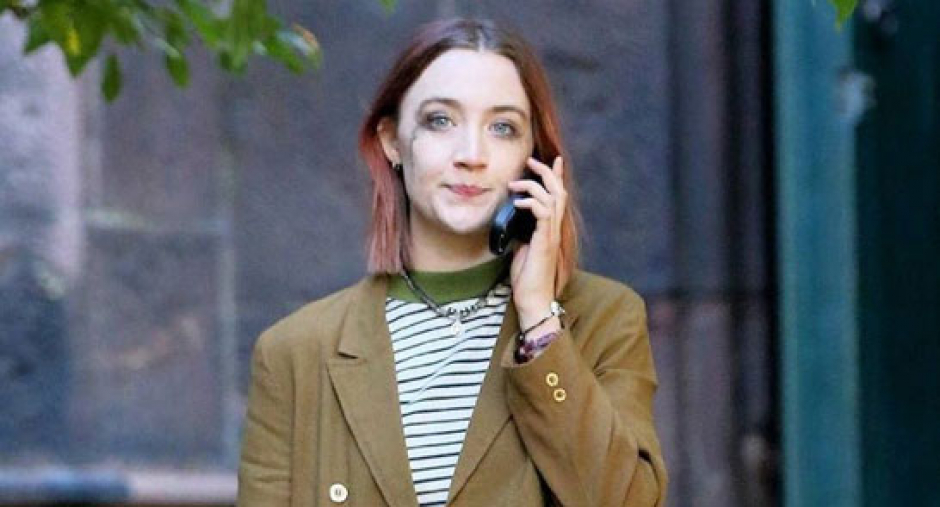There is much that is familiar in Greta Gerwig’s Lady Bird. It is a coming-of-age tale about a high school teenager which hits many of the expected narrative beats; there are arguments with parents, deep-talk with teachers, intensely felt loves and devastating break-ups. There’s a school play, a prom dance, a boozy party. But Lady Bird skirts through all this material with a nuanced freshness, an authenticity that is so often missing from this particular genre. Gerwig’s script is snappy and modern, Lady Bird herself (Saoisre Ronan) has a glorious complexity which grows far beyond the clichés of her cinematic peers. There’s a real bittersweet heart to the film; a love for people and places which is forever held in unbearable tension with loathing for those same people, that same place. This latter is Sacramento, California which Lady Bird despises and wants rid of, and yet the camera seems to adore it, picking out vistas and sunsets in the background even while the protagonist rages. This is entirely the point, however. This is a film which is all about the interconnection between hates and loves, both of which are so inexplicably and so keenly felt at that impressionable teenage moment.
It is Lady Bird’s relationship with her mother (Laurie Metcalf) which is the epitome of this theme. The film opens with them in a car together sharing a profound teary-eyed reaction to the end of The Grapes of Wrath audio cassettes and then, in a dizzying instant, they are throwing wrath at each other as Lady Bird strops and her mother bites back. They are both as bad as each other, but also equally wonderful combatants in the verbal sparring. We soon get the sense of the deadlock between them, which can only be broken by extreme action. Lady Bird throws herself out of the moving car.
These are the extremes Gerwig will regularly oscillate between; quick fury and sudden tenderness. Each character Lady Bird encounters – from best friend Julie (Beanie Feldstein), to her flings Danny (Lucas Hedges) and Kyle (Timothee Chalamet) – will meet both her steely exterior and her vulnerable interior, while Lady Bird herself tries to strike the balance, using her chalk-and-cheese parents as her frustrating sounding-board. Her ultimate dream is to get into an East Coast college and prove her intellectual worth, despite the patronising chuckles of her career advisor and the eye-rolls of her mother. But she is still young, still figuring herself out, and while she might be the tough, rebellious prankster, she is also still keen on ball-gowns and jewellery. This is a refreshingly nuanced take on early millennial femininity where the cliched boundaries of female character ‘types’ are no longer so easily drawn.
I found it refreshing too that this film chose not to position itself in the eighties or early nineties, nor in the present day, but in that awkward early 2000s moment (when I too was a gangly teen) that rarely gets such a cinematic showcase. There is a back-drop of post-9/11 concerns and the Iraq War rages on televisions and radios. It is a time still palpable, one of youthful assuredness as digital technologies rapidly rise but just before they become wholly consuming. Lady Bird shrugs beyond these concerns for the most part, in the manner which has earned millennials such subsequent disparagement from older generations. Gerwig’s greatest success here is showing the truth of this; yes, millennials can seem somewhat numbed, but this is a façade that has been constructed out of a necessity to claim an adult identity in a world which seemed to be on a knife-edge of control. As such, Lady Bird will get her moment when this background intrudes and she, like many of the best of her generation, will see more of the truth behind it than any of her jaded and secretive elders.
There are a few minor grumbles to be had. At times, the zingy script felt a little too zingy and little too scripted. It aims for authenticity but sometimes veers off into the hyper-active and unrealistic dialogue in the style of Aaron Sorkin (The West Wing, The Social Network). No doubt future Gerwig scripts will iron out these flourishes-too-far, but here the dialogue feels better when it flows with a realistic dynamism – such as it does between Lady Bird and her mother, for example. Also, towards the end, the narrative speeds up too much and becomes a little heavy on the montage to get us quickly to the conclusion. It was a shame, because the rest of the film takes its time to eke out the story and I was perfectly content to let it stretch itself out for fifteen or twenty minutes further.
But these are minor gripes that often come of a directorial debut and the many strengths of this film make for an exciting future for an exciting talent in Gerwig. In Lady Bird she is celebrating her own generation, which is also my generation; a gang of loud-mouthed, digital upstarts who have fought (perhaps are still fighting) a hard-won claim on a new version of maturity. Gerwig shows the battle between the millennial softness for difference fighting against the rigidity of traditional values. But the sides of that conflict are shown to be in coordination, just as much as they are in combat; not least in Lady Bird’s devotion to her Christianity, and her love-hate relationship with her home town and its residents.
There is much to entertain in Lady Bird, but below the punky, home-spun surface, there’s a real depth which will resonate with a much-misunderstood generation who have finally come to some sort of age. As such, this will no doubt be a film that will be treasured for a good long while.
by David Hartley

